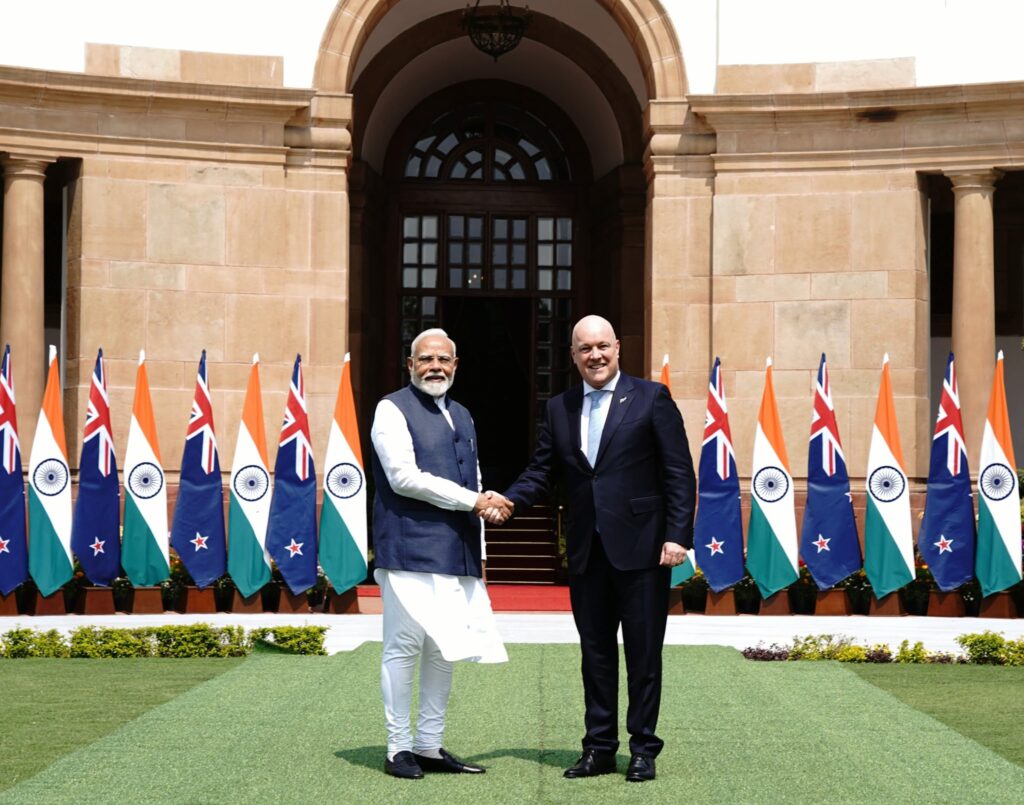New Delhi: Delegation-level talks between Prime Minister Narendra Modi and New Zealand Prime Minister Christopher Luxon took place on Monday in New Delhi, where both leaders announced plans to enhance the defense and security partnership between the two nations. This agreement will involve closer cooperation through joint military exercises, training programs, mutual visits to each other’s ports, and a new roadmap for collaboration in the defense industry.
The leaders also agreed to begin discussions on a free trade agreement (FTA) aimed at boosting trade and investment opportunities between the two countries. The free trade talks are expected to play a significant role in strengthening economic ties.
Additionally, the two leaders discussed sports relations, marking the upcoming 100th anniversary of their sporting connection in 2026. They agreed to further develop cooperation in sports coaching, athlete development, sports science, psychology, and medicine. Both Prime Ministers expressed their commitment to making 2026 a year to celebrate the longstanding sports relations between the two countries.
Prime Minister Modi also expressed concerns about anti-India activities in New Zealand, raising the issue with his counterpart. He emphasized that such activities would not be tolerated, and New Zealand assured India’s support in addressing illegal elements. Both leaders condemned terrorism in any form, with Modi reaffirming that terrorism, separatism, and radicalism are threats to global security and must be fought with cooperation between the nations.
Prime Minister Modi reiterated India’s commitment to a free, open, secure, and progressive Indo-Pacific region. He welcomed New Zealand’s support in this vision, particularly as it recently joined the Indo-Pacific Ocean Initiative, which focuses on enhancing regional maritime cooperation. Modi also congratulated New Zealand on joining the Coalition for Disaster Resilient Infrastructure (CDRI), following its earlier participation in the International Solar Alliance.
In their joint statement, both leaders emphasized their shared values of peace, security, and development, and their determination to work together for the future of the Indo-Pacific region and beyond.

